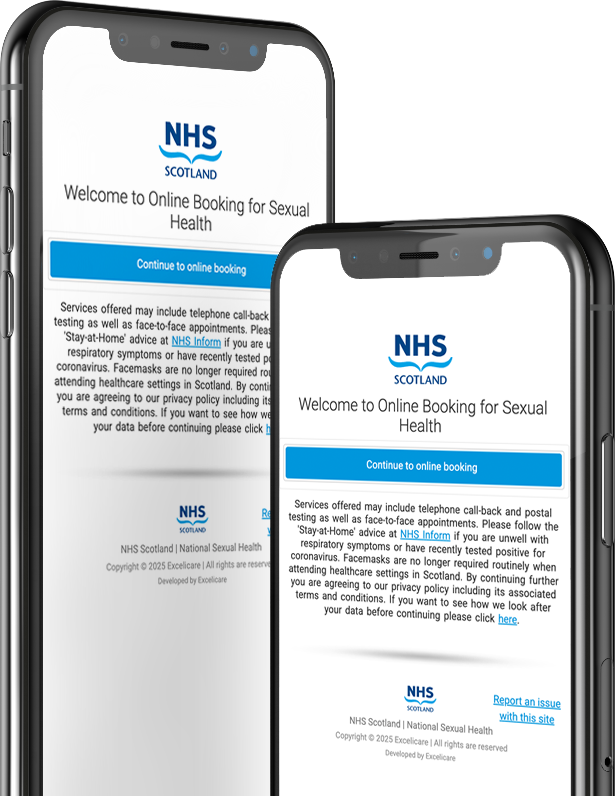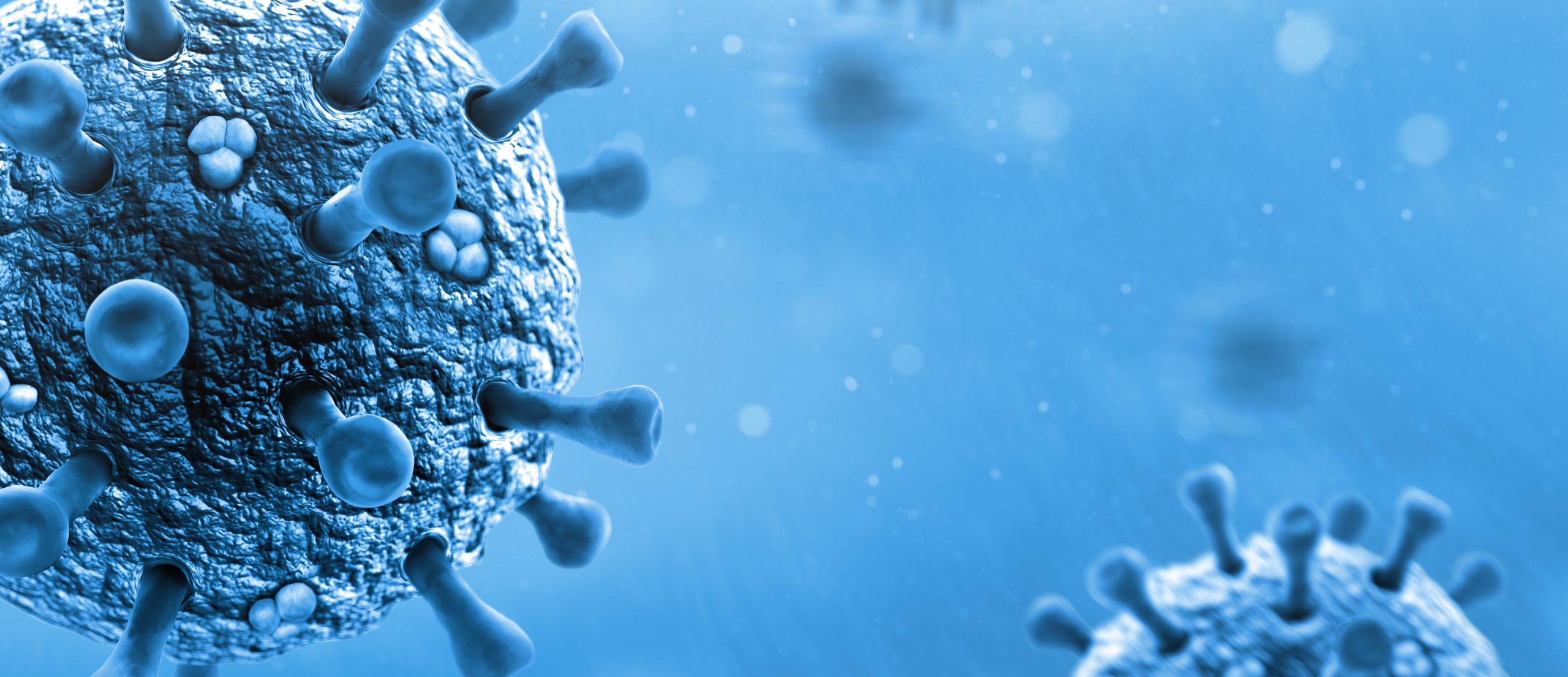
Blood Borne Viruses (BBVs)

Local Blood Borne Virus (BBV) Services
The Ayrshire and Arran Blood Borne Virus (BBV) Service is based at University Hospital Crosshouse. The unit provides specialist assessment, treatment and care for patients who have been diagnosed with HIV, Hepatitis C (HCV) and Hepatitis B (HBV).
The BBV specialist Team:-
BBV Nurses
The specialist nurse team have clinics within Crosshouse Hospital and community settings in North, East and South Ayrshire. The nurse team undertake blood tests, Fibroscans (to assess liver health), and sexual health screens. They offer support and advice to patients receiving treatment for HIV, HCV, and HBV.
BBV Clinicians
The BBV clinical team will be able to discuss the results of any tests / investigations that have been carried out and explain any changes to care. Clinics are held at Crosshouse Hospital but can also be done via telephone.
BBV Pharmacist
Specialist Pharmacist input to discuss medication regimens is available and can provide advice and information on the safe use of the medications the team prescribe. Consultations can be held via telephone.
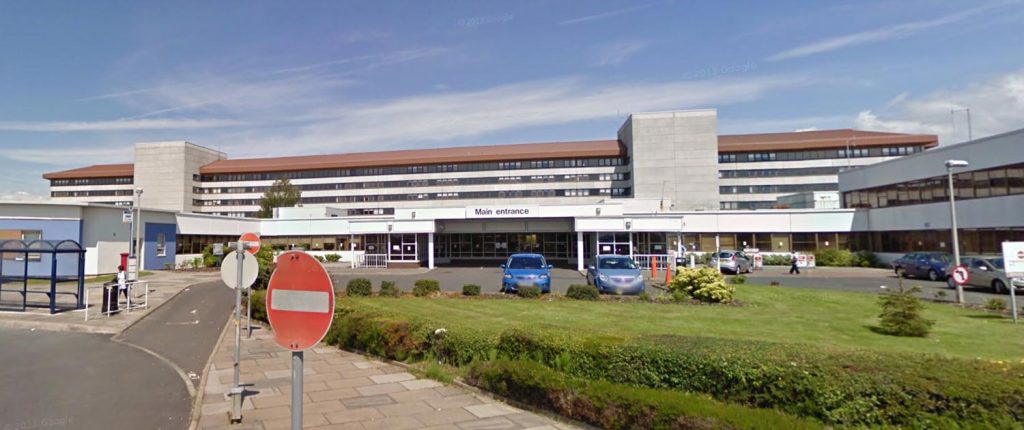
Referral to the BBV service
Initial referral to the Ayrshire and Arran BBV Service is generally through GPs, Addiction Services, or hospital in- and Out-patient services, but referrals are accepted from any source. Once patients are referred to the service, they are assessed for the most suitable treatment options or monitored closely on a regular basis.
Patients are asked to contact the BBV team directly, should they develop any new symptoms or are concerned about any changes in their condition.
Patients who have been diagnosed with a BBV but who are not currently receiving treatment can also self-refer to the clinic.
If you have any queries or concerns, then please call the BBV team on: – 01563545508

What will happen at the BBV clinic?
HCV
HCV is usually a nurse-led service. Once referral is received, you will be offered an appointment at the clinic to complete an initial assessment. Most people will be seen at the start, during, and the end of treatment, which is usually 8 to 12 weeks long. At the clinic, you will be offered a blood test and may receive a fibroscan (this is a simple type of ultrasound that is used to measure inflammation in your liver). Some patients with more complex conditions will be referred to the medical pathway. The BBV nurse will explain your treatment options, and answer any questions you may have, and you will usually be offered oral treatment. The oral treatment has a high cure rate of around 90-95% with few side effects. If left untreated, HCV can cause lasting damage to the liver, including liver cancer.
HBV
Once referral is received, you will be offered an appointment with the BBV nurse at the clinic to have some bloods taken, and a fibroscan (this is a simple type of ultrasound that is used to measure inflammation in your liver). You will be invited back to clinic within a week or so, to discuss treatment or management options, and to complete an initial assessment with the BBV Clinician. Most people will be invited to the clinic twice per year.
Not everyone with HBV needs treatment – this will depend on the results of investigations, and any symptoms you have. Acute and chronic HBV sometimes clear from your body on its own (although this is much more likely with acute HBV). Sometimes, your body’s immune system isn’t able to clear the virus on its own, and you may require treatment.
HIV
You will be invited to the BBV clinic within 2 weeks of the referral being received, where you will have an assessment by the BBV nurse including blood tests. Within another 2 weeks, you will be invited to the clinic and the BBV clinician will meet with you to complete an in-depth assessment. They will discuss treatment options with you and answer any questions you may have.
You will be offered an initial 3-month supply of medication. You will be invited back to clinic at 4 weeks so clinicians can test your blood again to check you are tolerating the treatment. You will be invited to the BBV clinic for bloods at 4 weeks, 12 weeks, 24 weeks and 52 weeks. After 1 year, you will be invited to attend the clinic every 6 months for a review.
On treatment, most people with HIV have an undetectable viral load within 3 to 6 months.

Testing for BBVs
A simple blood test is used to test for BBV’s.
Did you know that you can access testing for BBVs by speaking to your GP, booking an appointment at any of our Sexual Health Clinics, through the Terrence Higgins Trust, or your Addiction support worker or nurse if you have one.
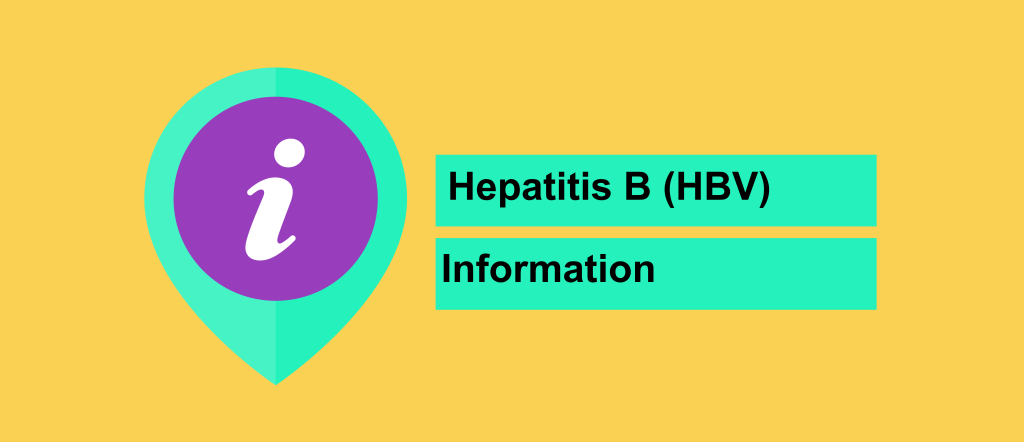
What is Hepatitis B (HBV)?
The Hepatitis B virus (HBV) is carried in blood, semen and vaginal fluids. One way it can be transferred is through sexual intercourse with an infected person without a condom. The virus is also easy to pass on by sharing injecting equipment. It can also be transferred from mother to baby during pregnancy or birth.
Lots of people with hepatitis B don’t notice any symptoms and this can lead to it being missed. Symptoms can include:
- Stomach ache
- Jaundice (yellowing of the skin and whites of the eyes)
- Loss of appetite
- Tiredness
- Vomiting
Symptoms can last a number of weeks, and it can take some time to return to normal.
People infected with HBV as adults tend to recover fully, but around 1 in 10 remain infectious and then spread the infection onwards.
Hepatitis B vaccine – Immunisation in Scotland | NHS inform
People infected as children (under 5) or at birth are much less likely to clear the virus, and around 9 in 10 remain infectious through to adulthood.
HBV can affect the liver if undiagnosed or left untreated for a length of time. If you test positive, it is important to take medication for HBV regularly and attend any follow-up appointments recommended by the BBV clinical team.
More information on Hepatitis B
Are you curious about HBV, or recently tested positive and want to learn more about what to expect? Further information on HBV is included below.
HBV medications
Treatment for hepatitis B – British Liver Trust
Not everyone with HBV requires medication – this will depend on you as an individual and be agreed with your BBV clinician. Some medications will require close monitoring of your kidneys. This is done with a blood test.
If you have any queries or concerns then please call the BBV team on: – 01563545508
Living with HBV
If you are living with HBV, you can minimise the risk of transferring the virus to others by doing a few simple things. These include but not limited to:
- not sharing personal items such as toothbrushes or razors
- not sharing injecting equipment or drug use equipment (e.g. needles, syringes, swabs, spoons, filters, pipes, straws or banknotes)
- using a condom or dam when having sex
The virus cannot be passed on through things like hugging, kissing, or handshakes. However, it is a good idea for close contacts e.g. people you live with to get vaccinated. The HBV vaccine is highly effective and has very few side effects.
Vaccination
HBV vaccines are available. In the UK, these are offered FREE OF CHARGE to – all babies, those at high risk of HBV (e.g. close contacts of someone living with Hepatitis B), and those who may have been exposed to the virus.
Over 9 in 10 adults who get the vaccine are protected from hepatitis B.
Hepatitis B vaccination is now offered to those who are eligible when attending the sexual health clinic for other appointments, for example PrEP. Please ask a member of staff for more information.
Hepatitis B vaccine is now part of the childhood vaccination schedule. If you were born before 2017 you will probably not have had hepatitis B vaccination.
People with acute or chronic HBV should be offered HAV vaccination.
You can get the vaccine locally by contacting the Sexual Health Clinic, or speak to the BBV clinical team
Hepatitis B vaccine | Prescribing information | Hepatitis B | CKS | NICE
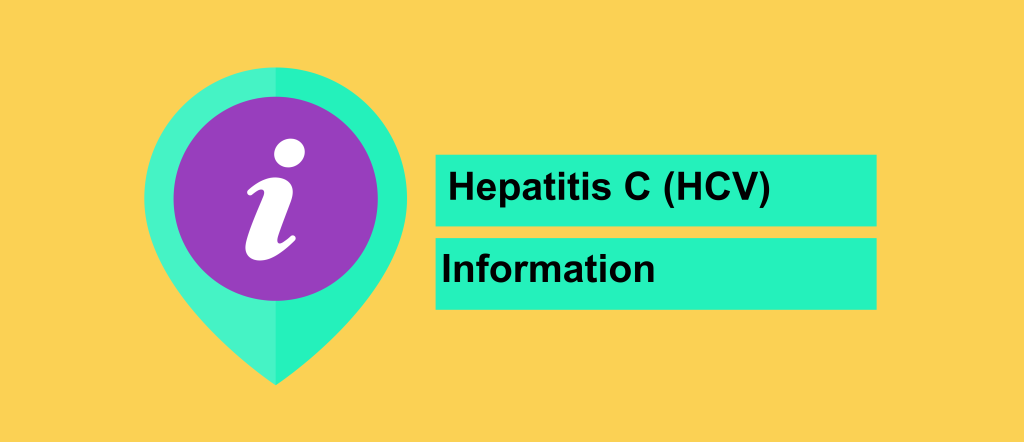
What is Hepatitis C (HCV)?
Hepatitis C is a blood borne virus (BBV), meaning it is carried in the blood. The virus can be passed on when blood from someone with the virus, enters the blood stream of someone else.
HCV can be passed on by:
- Sharing injecting equipment/ sharing drug use equipment
- From mother to baby during pregnancy
- Medical or dental treatment in countries which don’t have adequate infection control procedures or where Hep C is common
- Unsterilised piercing or tattoo equipment (although, in registered premises in the UK this should be safe)
- Sex (this is rare, although slightly more common among men who have sex with men).
Hepatitis C (Hep C) can be either acute (diagnosed within the first 6 months of infection), or chronic (diagnosed after the first 6 months of infection).
Many people with HCV don’t notice any symptoms when they are first infected.
Early symptoms or acute Hep C might include:
- stomach ache
- loss of appetite
- tiredness
- nausea
- a temperature
- Jaundice (yellowing of the skin and whites of the eyes)
Later symptoms or chronic Hep C might include:
- Stomach ache
- Nausea, indigestion, or bloating
- Feeling tired all the time
- Itchy skin
- Brain fog
- Depression or anxiety
- Jaundice (yellowing of the skin and whites of the eyes)
- Joint pain
More information on Hepatitis C
HCV medication
Following infection with Hepatitis C, your body might be able to clear the virus itself. However, if you are symptomatic, or do not clear Hepatitis C within six months (chronic Hep C) then you may be offered treatment. Hepatitis C – British Liver Trust.
Living with HCV and harm reduction
If you are living with HCV, you can minimise the risk of transferring the virus to others by doing a few simple things. These include but are not limited to:
- not sharing personal items such as toothbrushes or razors
- not sharing injecting equipment or drug use equipment (e.g. needles, syringes, swabs, spoons, filters, pipes, straws or banknotes)
The virus cannot be passed on through things like hugging, kissing, or handshakes.
Vaccination
There is no vaccination against Hep C.
People with HCV, should be offered vaccination for Hepatitis A (HAV) and HBV. Vaccination is available from a range of settings including the Public Health team, or your Addictions support worker or nurse, if you have one. Speak to your BBV nurse to decide the best option for you.

What is HIV?
HIV stands for Human Immunodeficiency Virus.
The Human Immunodeficiency Virus (HIV) is a virus which attacks the body’s immune system which, if left untreated, can leave the body vulnerable to infections with which it would normally cope.
It is estimated that a quarter of people living with HIV in Scotland are unaware of their infection. Those who are unaware of their status remain at risk to their own health and of unknowingly passing the infection onto others.
HIV is passed on through bodily fluids (e.g. blood, semen, vaginal fluid, breast milk etc.)
People can get the virus through:
- Vaginal or anal sex without a condom
- Sharing drug injecting equipment
- From mother to baby during pregnancy
- Coming into contact with contaminated blood e.g. needle stick injury or blood transfusion in setting with poor infection control procedures. (Blood and blood products in the UK are all screened for BBVs)
Many people will feel ill with flu-like symptoms around 2 to 6 weeks after infection, and this could last for up to 2 weeks. This is called primary HIV infection.
The most common symptoms of primary HIV infection or seroconversion are:
- Sore throat
- Fever
- Feeling tired
- Rash
- Swollen lymph nodes
- Muscle aches
Some people don’t have any symptoms at all during this stage.
After this stage, symptoms can disappear, and people may not experience any further symptoms for many years. Because of this, many people with HIV do not know they have the virus. During this time, the virus is still active in the body and can continue to cause damage to the immune system.
Over time, the virus progressively weakens the immune system. This can lead to symptoms like:
- Swollen lymph nodes
- Weight loss
- Cough
- Night sweats
- Extreme tiredness
More information on HIV
HIV treatment
There is no vaccine or cure for HIV. However, effective treatment is available that allows individuals living with the virus to live a normal life. The BBV team will be able to provide you with more information.
Undetectable = Untransmittable (U=U).
People with an undetectable viral load for 6 months cannot pass the HIV virus on through sex. This means that you do not need to use condoms during sex to protect your partner against HIV (although you may still wish to use condoms to prevent pregnancy or other sexually transmitted infections).
It is important to note that U=U applies to sexual transmission. You may still be able to transfer the virus to others if sharing needles or injecting equipment.
Frequently Asked Questions about UU
Living with HIV and harm reduction
You can reduce the risk of complications of HIV by taking your medication, exercising regularly, and eating a balanced diet.
There a number of opportunistic infections which you may be at higher risk of developing, if your immune system has been damaged by HIV. Although, if you take your HIV treatment, the chance of developing these infections are low. It is important to take your medication and attend the BBV clinic for regular reviews.
If you are living with HIV, you can minimise the risk of transferring the virus to others by doing a few simple things. These include but not limited to:
- not sharing personal items such as toothbrushes or razors
- not sharing injecting equipment or drug use equipment (e.g. needles, syringes, swabs, spoons, filters, pipes, straws or banknotes)
- using a condom or dam when having sex
The virus cannot be passed on through things like hugging, kissing, or handshakes.
HIV and AIDS – Living with – NHS
Preventative & emergency medication
Click below for
HIV Pre-Exposure Prophylaxis (PrEP) and Post exposure prophylaxis (PEP) information:
HIV-Post Exposure Prophylaxis and PrEP – Sexual Health Ayrshire
Vaccination
People with HIV should be offered the vaccinations below by the BBV team:
- Hepatitis A – if you have HIV but also inject drugs, are a man who has sex with men, or have a travel risk
- Hepatitis B – All patients with HIV should be offered HBV vaccine, unless they have been infected in the past, or they have completed a course of vaccination, and their surface antibody is > 100
- HPV – MSM or equivalent risk, e.g. commercial sex work or transgender
Vaccines and People with HIV | HIV.gov
Flu jab and other vaccines | Terrence Higgins Trust
What vaccinations are recommended for people with HIV? | aidsmap

Harm Reduction
You can access injecting equipment provision (IEP) via community pharmacies or needle exchanges across Ayrshire.
Harm Reduction – Community Pharmacies
Alcohol and Drug Services – NHS Ayrshire & Arran
Use a condom for safer sex and to prevent STI’s. You can get condoms FREE OF CHARGE through our CCard scheme, or postal condom service. For more information click here.
You can access STI testing:
- At the Sexual Health Clinic. Contact the sexual health clinic to book an appointment on 01294 323 226.
- At some local pharmacies. Check which Pharmacy near you offers this by checking here.
- Order a FREE Chlamydia/Gonorrhoea STI testing kit to your home, and post back to our local labs – At home Chlamydia and Gonorrhoea testing – Sexual Health Ayrshire

Useful Links
Vaccines against hepatitis b Hepatitis C - British Liver Trust What vaccinations are recommended for people with HIV? Flu jab and other vaccines Vaccines and people with HIV Hepatitis B - Terrence Higgins Trust Hepatitis C - Terrence Higgins Trust Symptoms of HIV - HIV.gov HIV - NHS Inform Side effects - Terrence Higgins Trust HIV- Post Exposure Prophylaxis and PrEP HIV and AIDSRELATED PAGES

